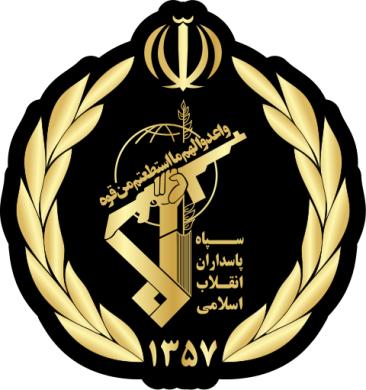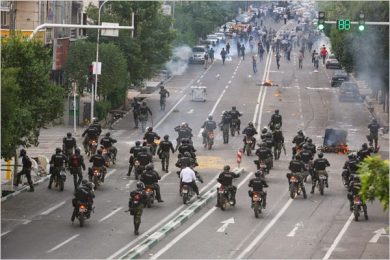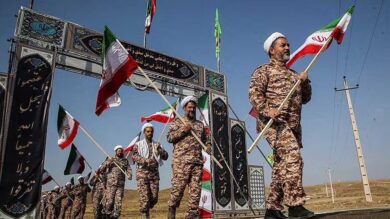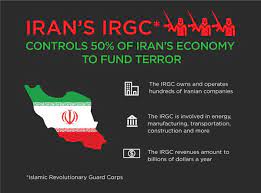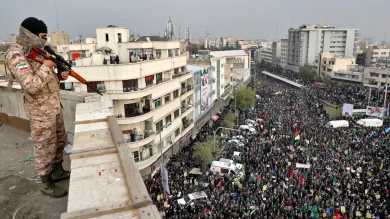Iran’s Islamic Revolutionary Guard Corps (IRGC) has built a brutal prison system designed to silence, torture, and break political activists, journalists, students, and human rights defenders. The regime uses arbitrary arrests, sham trials, forced confessions, and inhumane treatment to suppress opposition. Many prisoners endure years of solitary confinement, psychological torture, and physical abuse, often for nothing more than peaceful protest or online activism. This report delves into the horrors of Iran’s prison system, focusing on activists who have suffered under IRGC control, the methods of repression, and the global efforts to expose these abuses and demand justice.
1. The IRGC’s Role in Political Repression
The IRGC, through its intelligence unit and Basij paramilitary forces, oversees mass arrests, interrogations, and imprisonment of anyone perceived as a threat to the regime.
A. The Targets of IRGC Arrests
The IRGC targets a wide range of activists, including:
• Human rights defenders exposing regime abuses.
• Women’s rights activists defying mandatory hijab laws.
• Journalists and bloggers reporting on corruption and protests.
• University students and professors engaging in pro-democracy discussions.
• Ethnic and religious minorities, including Kurds, Baloch, and Bahá’ís.
B. How the IRGC Conducts Arrests
• Night raids: Many arrests happen in the middle of the night, with IRGC forces storming homes.
• No legal warrants: Detainees are often kidnapped off the streets without any formal charges.
• Secret prisons: Some activists are taken to undisclosed locations, leaving families in the dark.
2. The Most Notorious IRGC-Controlled Prisons
A. Evin Prison (Tehran)
• Known as “Iran’s Torture Factory,” Evin Prison houses many political prisoners.
• Former detainees report beatings, sexual abuse, and forced confessions.
• Prisoners are often held in solitary confinement for months in windowless, soundproof cells.
B. Fashafuyeh Prison (Greater Tehran)
• Originally built for violent criminals, activists are placed here among murderers and drug traffickers.
• Medical neglect and unsanitary conditions lead to illness and death among prisoners.
C. Sepidar and Sheiban Prisons (Ahvaz)
• Used primarily for ethnic minorities like Arabs and Kurds.
• Many political prisoners are executed after sham trials.
D. Ward 209 (Evin Prison)
• Operated directly by the IRGC’s Intelligence Unit.
• Prisoners are blindfolded, beaten, and psychologically tortured until they confess to fabricated crimes.
3. Stories of Activists Imprisoned by the IRGC
A. Narges Mohammadi: Women’s Rights Defender
• Arrested multiple times for advocating women’s rights and against the death penalty.
• Held in solitary confinement, denied medical care, and subjected to physical beatings.
• Continues to write and resist despite years behind bars.
B. Nasrin Sotoudeh: Human Rights Lawyer
• Defended women arrested for removing their hijabs.
• Sentenced to 38 years and 148 lashes for her legal work.
• Went on hunger strikes to protest inhumane prison conditions.
C. Jailed Protesters from the 2022 Uprising
• After Mahsa Amini’s death, thousands were arrested, tortured, and sentenced to death.
• Teenagers and students were forcibly disappeared into IRGC prisons.
• Many faced sham trials, accused of “corruption on earth”, a crime punishable by execution.
4. Methods of Torture and Abuse in IRGC Prisons
A. Physical and Psychological Torture
• Severe beatings with cables and mock executions.
• Electric shocks and prolonged solitary confinement.
• Sexual violence and abuse, particularly against women prisoners.
B. Forced Confessions and Show Trials
• Prisoners are tortured into confessing to crimes they did not commit.
• These confessions are broadcast on state television as propaganda.
• Trials last only a few minutes, with no legal defense allowed.
C. Medical Neglect and Inhumane Conditions
• Prisoners are denied essential medication and healthcare.
• Overcrowding, lack of clean water, and disease outbreaks are common.
• Many political prisoners die due to deliberate medical negligence.
5. Global Response to IRGC Prison Abuses
A. International Condemnation
• The United Nations, Amnesty International, and Human Rights Watch have documented and condemned Iran’s use of torture and political imprisonment.
• The UN has called for independent investigations into IRGC-run prisons.
B. Sanctions on IRGC Officials
• The U.S., European Union, and Canada have sanctioned IRGC officials responsible for prison abuses.
• Calls for stronger sanctions on the IRGC’s intelligence unit and prison officials are growing.
C. Efforts to Free Political Prisoners
• International campaigns advocate for the release of jailed activists.
• Exiled Iranian communities work to amplify the voices of political prisoners through protests and lobbying.
6. How to Support Iranian Prisoners and Fight IRGC Abuses
A. Raise Awareness and Share Stories
• Use social media to share the stories of imprisoned activists.
• Support campaigns like #FreeIranPrisoners and #StopIRGC.
B. Demand Sanctions on the IRGC
• Pressure governments to sanction IRGC officials involved in torture and arbitrary arrests.
• Support efforts to designate the IRGC as a terrorist organization.
C. Support Human Rights Organizations
• Donate to groups working on Iranian prisoners’ rights, such as:
• Amnesty International
• Iran Human Rights
• Center for Human Rights in Iran
Conclusion: The Fight for Justice Continues
The IRGC’s brutal prison system is a tool of fear, control, and repression. Despite horrific conditions, activists inside Iran remain defiant, refusing to be silenced.
The global community must act by increasing diplomatic pressure, exposing human rights violations, and holding the IRGC accountable. Every activist’s voice must be amplified, and their sacrifice must not be forgotten.
Join Our Newsletter!
Stay informed with the latest updates, news, and ways to take action in the fight for justice and global security. Sign up now to get updates delivered straight to your inbox!

